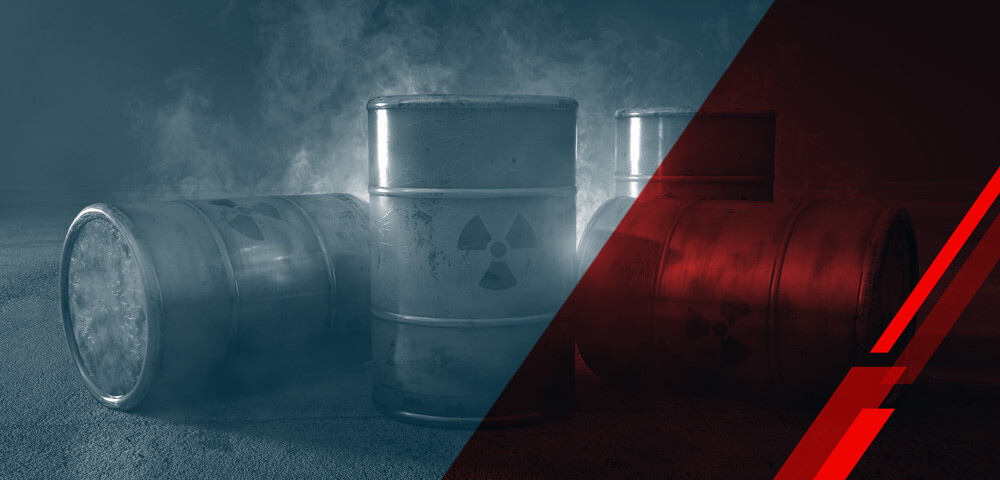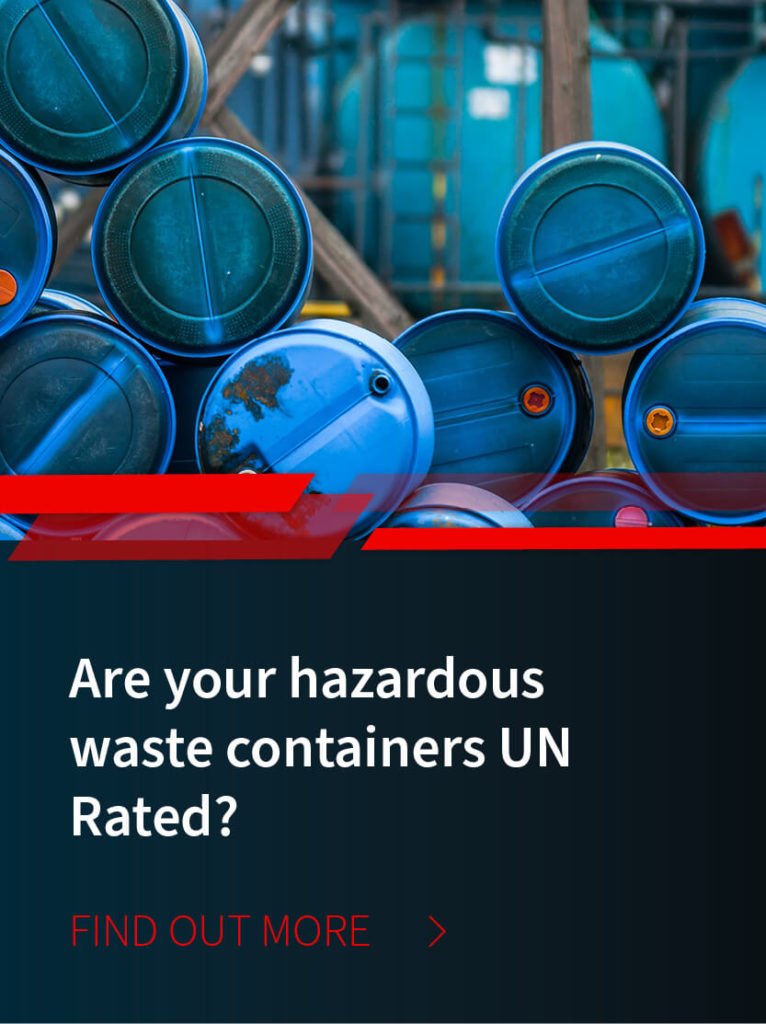
/ IN THIS BLOG
01 / Are you a toxic waste generator?
If you’re in the business of manufacturing, farming, construction, automotive servicing, laboratory work, or medicine—just to name a few—odds are that you’re generating what the EPA considers a toxic waste.
Each of these enterprises can yield heavy metals, radiation, dangerous pathogens, or other poisons that can pollute the air, water, or soil—and all of which can be absorbed through the skin, inhaled, or swallowed.
In fact, common household products such as batteries, pesticides, paint, and automobile lubricants are considered toxic when improperly disposed of. Computers, televisions, and cell phones contain toxic chemicals.
02 / Examples of common toxic wastes
The United Nations Environment Program (UNEP) has published a list of substances that pose a risk to human health and are therefore considered toxic waste. Among them:
Clinical wastes—such as contaminated “sharps;” human blood and blood products; pathological, microbiological, or “isolation” wastes; or cultures and stocks of infectious agents
03 / How to dispose of small quantities toxic waste
For small quantities, the best way to manage toxic waste is trying not to have any in the first place. You can do this by buying only as much of a chemical product as you need so that it’s used up—and then disposal becomes a moot point.
Of course, it’s likely there’s going to be some left. In such cases:
One alternative is to give it away. Post it on Craig’s List or some other e-board under Free Stuff. Churches, theater groups, charities, or your local housing authority might be happy for small quantities of usable paint or cleaning products—and donating it can enhance your external brand.
If you still have to dispose of a toxic waste somehow, then check the product label for specific disposal instructions. If it’s a chemical that’s neutralized by water, for example, you might be able to pour it safely down the drain while running water.
You can also do your own recycling. Some solvents, like paint stripper, can be reused if you let them sit for a time. When the solids settle, pour off the top liquid into a clean jar, and set it aside to use again. Usually, you can toss the solids into the trash.
Other products, such as automotive lubricants, can be taken to local gas stations for recycling. Your community might have a recycling program for this particular purpose, or even special collection days specified for toxic materials.
04 / How to dispose of larger-scale business, manufacturing, and industrial toxic waste
At the business, manufacturing, and industrial level, it’s crucial to get expert advice.
Remember, per the Resource Conservation and Recovery Act (RCRA), you’re responsible for any toxic waste you “generate” from “cradle-to-grave.” This includes not only the generation, but also its transportation, treatment, storage, and disposal.
In other words, you’re not only accountable for a toxic waste from the moment it’s generated; you’re also legally responsible for its safe transportation to wherever it will be ultimately processed or disposed of.
Once you’ve generated a toxic waste, you’re responsible for any improper offsite transportation and disposal—should such a thing happen—and all the legal and financial liabilities that go along—not to mention the public relations damage caused by being fingered as a “polluter.”
05 / It’s easy to be considered a toxic waste generator
Kentucky does not significantly differ from other states in terms of what’s required in a hazardous waste contingency plan. To avoid fines, your facility must be compliant with both federal-level regulations and state-level regulations, so take that into account whenever creating your plan.
Because Kentucky has such a large manufacturing base, a lot of businesses are required to have emergency procedures and contingency plans in place. Don’t take shortcuts. Do it right.
For more information about hazardous waste management and contingency plans and how they affect your Kentucky-based business, feel free to contact a representative of MCF Environmental Services today!
06 / You need expert advice
It can be a fulltime job to ensure that your toxic waste management vendor is properly licensed and adequately experienced to handle the kind and size of toxic waste you generate.
In almost all cases, it’s a state agency that provides enforcement and interpretation of EPA toxic waste management regulations—not the federal government. Thus, individual states can differ about what constitutes a toxic waste and how it should be handled.
You need a vendor who’s constantly assessing the evolving local, state, and federal regulatory framework surrounding toxic waste, and who can comprehensively manage its transportation, storage, and treatment.
As in all things involving the EPA—you need to get expert advice from specialists acquainted with the regulations, packaging, handling and transport protocols of toxic waste; reach out to one of our team below to learn more.
In the meantime, thank you for reading our blog!
Robert Losurdo
President, COO








